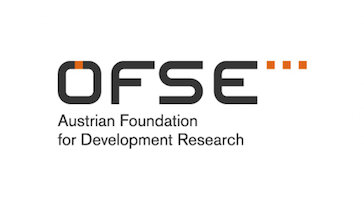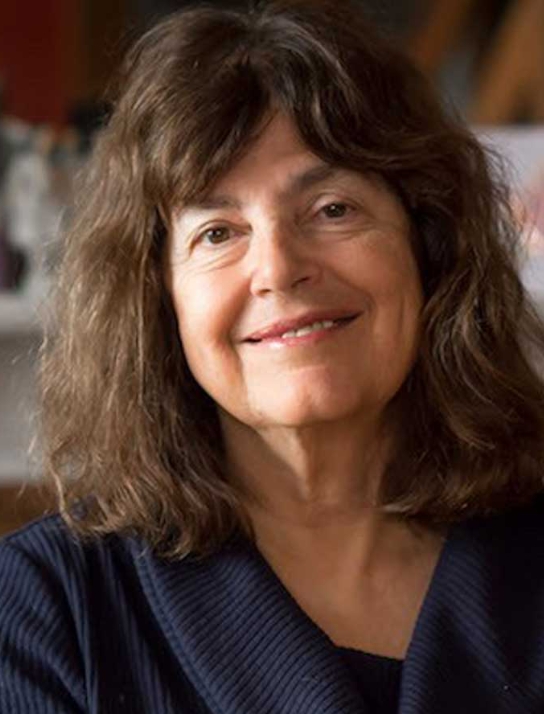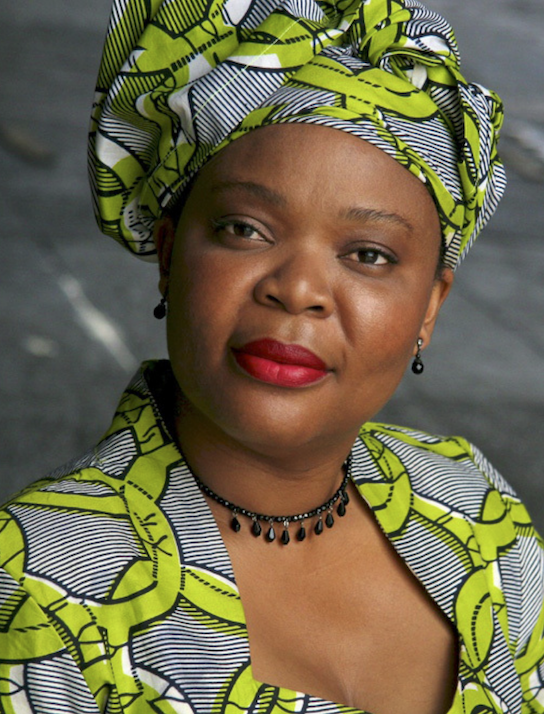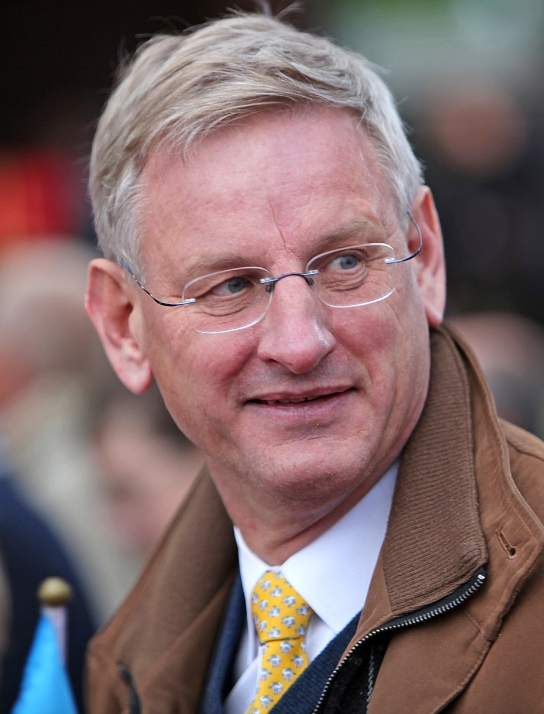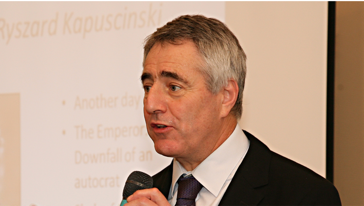We are living through a period of transition, which is characterized by competing conceptions of power and competing ways of doing security. In contrast to the Cold War and indeed the whole period of modernity, the combination of new wars and the war on terror in places like Syria, DRC, or Yemen is undermining many of the norms and laws of war associated with traditional geo-politics – bombing schools and hospitals, long distance assassination, the use of poison as a weapon or beheadings and sexual slavery – and producing large-scale forced displacement.
Against this background, the Kapuscinski Development Lecture with Professor Mary Kaldor argued that the European Union potentially represents a new form of political authority – a model of global governance in contrast to traditional states like the US, Russia or China. This is illustrated by its security culture as represented by the European Union Global Strategy on foreign and security policy. The Global Strategy aspires to a form of Liberal Peace that is based on human security rather than national security. The evolution of the EU, she argued, depends to a considerable extent on whether the EU adopts a closed-in traditional inside-outside bordered approach to security or alternatively whether it pursues a global human rights-based approach and is able to respond effectively to its crisis-ridden neighborhood. To this end, the promotion of sustainable development in its economic, social and environmental dimensions will be of vital importance.
Kaldor, daughter of famous economist Nicholas Kaldor, described the 1990ies – following the collapse of communism – as a period of hope and optimism, while the world currently passes through a turbulent period of fear and pessimism with phenomena like refugees drowning in the Mediterranean sea, the deliberate bombing of hospitals and schools, killing people with lorries or air planes, using hideous weapons, that are prohibited by international law or the reintroduction of sexual slavery. For the European Union it is particular important to crucial to analyse thoroughly the powers contributing to this kind of “new wars” and to develop a strategy to deal with it. At the same time, the rising of xenophobia, racism and right-winged populism in in the United States, Russia, China, and India as well as in European countries can be observed.
To find out what could be done to reverse the described situation Kaldor introduced the concept of „security culture“ as a way of doing security, a combination of narratives, tools, practices and infrastructure, which embed certain styles of doing security. During cold war, there was only one way of doing security nationally, shaped by geopolitics, with a sharp distinction between external and internal security. Kaldor attested competing security cultures at present time that blur the difference between inside and outside security.
Kaldor developed her concept due to a „security gap“, she had recognized. Starting with the question: why do millions of people live in conditions of insecurity and the military security forces don’t address the problems they face but often make them worse? she became influenced by the term of „strategic culture“ of strategic studies literature from the 1950ies to explain why countries do security differently. She outlined four types of security culture: 1. Geopolitics, with the objective of national security. 2. New wars, meaning contemporary wars can be understood as a culture rather than a political contest. 3. Liberal peace, associated with intergovernmental institutions, emerged as an alternative to geopolitics. The goal of 'liberal peace’ is stability that provides peace between states. 4. War on terror, representing an evolution of geopolitics to something new. In contrast to geopolitics, the war on terror is a war of manhunt, involving special forces as well as drones.
Finally, Kaldor argues, that the security concept, the European Union will develop, will be profoundly shaped by the kind of institution the EU will become in the future. In her view, the EU could evolve into a new type of institution, she calls a ‚model of global governance’. Since the EU is not a state, it could restrain the worst aspects of statehood (war and oppression) and could instead address global challenges like climate change, inequality and financial speculation.
In the following broader discussion on what could constitute the EU foreign security policy panellist Ulrich Brand, Professor of political science, international politics and political ecology at the Department of Political Science at the University of Vienna and an expert on Latin America, first commented Kaldor’s lecture in three aspects. The concept of human security is an excellent critique for a too narrow understanding of security. Besides its focus on individuals, every day practices and vulnerability it is very important to underline that it is against a pure market driven agenda, as the state should play a key role. It criticizes the current re-militarisation of politics. Brand raised the question to Mary Kaldor what the vision of a peaceful world could be. Second, he asked why she downplays the root causes of insecurity. Obviously, there are universal tendencies, for instance racism, patriarchy, capitalist market economy or the destruction of the environment, which all go hand in hand with an enormous violence. It is not sufficient to acknowledge these violent practices, it calls for a thorough analysis. The liberal peace in the Global North has a precondition elsewhere, in the Global South and is a cause of insecurity and violence. In his final comment Brand then argues, that Kaldor’s outline of the EU as a global leader for these global governance issues is too positive. The EU should be understood as an imperial power in competition with other imperial powers, in securing free trade, resource imperialism, and not only a model of global governance. To him, the EU is a power driven, class structured, agenda driven and elitist project. What we would need, is a selective disintegration to create space for initiatives to enable human security.
